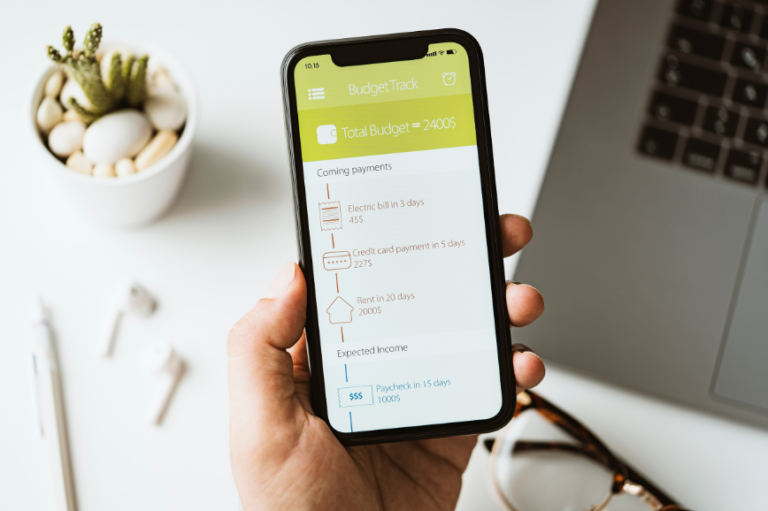Saving vs. Investing: Learn the best option for your money ( 2024)
Does saving vs. investing come to mind when you have some cash?
Which is more appealing, traveling to Bali in the next six months or living a luxurious life from 50 years old? I hope you chose both; this is the most straightforward overview of saving vs. investing.
People often use these words interchangeably, but they mean different things and achieve different purposes. However, there are some similarities too.
Depending on your goals, both can come in handy at different seasons of your life for different purposes. Regardless, the goal is to spend your money wisely while putting it to good use, yielding both short-term and long-term satisfaction.
Let’s look at these two terms even further. Understanding the meaning of each word, its similarities, and differences will help when deciding which to opt for in certain situations.

Photo by Mathieu Stern on Unsplash
To cover all foreseen expenses for your traveling to Bali in July, you are likely to start putting some cash aside beginning in January. For example, after creating your travel budget, you calculate $5000 for your 10-day trip. With six months between January and July, you start putting aside $5000/6 = $840 monthly out of your $4,200 monthly paycheck.
The money put aside is savings, woohoo! Savings is intended for a short-term goal involving you setting aside cash for a set goal.
Savings usually come with little to no risk. For instance, there is a low risk associated with saving in your Bank Of America savings account for six months unless the bank shuts down. Even if they do, they are less likely to run away with your money.
You can get some additional interest on your savings with a savings account, but it’s nothing huge.
What is investing?
On the other hand, investment is a long-term game that uses cash to buy assets to generate more cash. Living a luxurious life from 50 years old is a long-term goal that requires strategic financial planning so is your unborn children’s college tuition.
This is where a 401(k) plan comes into play or buying reliable stocks, real estate, shares, gold, mutual funds, bonds, etc. These assets appreciate with a calculated expectation of vastly increasing your initial investment.
Some investment plans are rock solid with medium risk, while some have high risks. With this understanding, it’s advisable to do your thorough findings on your investment options before deciding on a plan or some plans.
RELATED POSTS
- Practical tips for how to save money on a low-income
- Budgeting tips | 7 practical steps to create a personal budget
- 10 Easy ways you can make money online as a beginner
Saving vs. Investing explained!
I’m sure you now know the uniqueness of saving vs. investing, but let’s dive deeper into their similarities and differences.
Similarities
Both saving and investment achieve a common goal: to accumulate money, whether it is a trip to Bali or your child’s college tuition 18 years from now.
Involving in any of these actions explains you are dedicated to a future of financial freedom. It shows you’ve developed great habits that many Americans struggle with.
According to the Federal Reserve reports, 36% of Americans don’t have enough money on hand to cover a $400 emergency. Also, the average American’s savings account balance is $4,500.
“62% of Americans aged 18 to 29 have some retirement savings, but only 28% feel on track for retirement.” ~ The Motley Fool
Another similarity is that savings and investing give you some percent of interest.

Photo by Sharon McCutcheon on Unsplash
Differences
“The three most important words in investing are margin of safety.” ~ Warren Buffet.
I smiled after reading this quote by Warren because it pretty much summarizes one of the significant differences between saving vs. investing, THE RISK FACTOR.
Using the example I shared at the start of this discussion, let’s analyze the difference between these interesting terms.
| FEATURES | SAVINGS | INVESTING |
|---|---|---|
| DURATION | Used for short-term goals, < 5 years | Used for long-term goals, >5 years |
| RISK | Comes with low risk | Comes with risks; medium or high |
| Return on Investment (ROI) | Small ROI | High ROI |
| LIQUIDITY | Cash is easily retrievable | Cash isn’t easily retrievable |
| ECONOMIC INFLATION | It’s devalued by economic inflation | Value is seldom devalued by economic inflation |
| ACCOUNT TYPE | Types of accounts include: bank savings account, Deposit account, or Certificate of Deposit | Stocks, mutual funds, bonds, shares, broker account |
Duration
Here are some examples of different goals, duration, and whether to save or invest
- Son’s basketball-themed 18th birthday
- Buy a home nine years from now
- A trip to the Maldives
- A 28-year-old who wants to build an orphanage home in their 40s
Examples 1 and 3 fall under savings because they are short-term goals and need immediate access to cash. Whereas examples 2 and 4 are long-term goals requiring large sums of money, thoughtful planning, and a longer timeframe to achieve them.
Risk
With savings accounts, the risks associated with losing your principal are close to none, but losing your capital is a chance you should be ready to take with investment accounts.
Return on Investment (ROI)
Investments usually come with compounded interests, while savings come with simple interest.
Take a look at this example.

Photo by Austin Distel on Unsplash
Mr. B has $4,200 per month of expendable cash and is wondering if he should save or invest. He has a wiggle room of 6 years to save or invest this amount. What should he do?
| SAVE (3% simple interest) | INVEST (25% ROI, Real Estate) | |
| Today | $4,200 | $4,200 |
| Year 1 | $ 55,415. 30 | $63,155 |
| Year 3 | $ 162,501. 38 | $235,369 |
| Year 6 | $ 335,481. 56 | $721,036 |
Note: Investments usually have higher interest rates than regular savings hence the different interest rates used in the above simulation.
Liquidity
You can see investing as a locked savings plan that you don’t have access to for a long-time while saving is the opposite. This is why understanding these differences is vital to your decision-making process.
It would be a disaster if you invested in your trip to Bali and couldn’t access the money close to July when you need to travel.
Economic Inflation
As inflation goes up, the value of your savings goes down and vice-versa. But, investments rarely change, and they can even increase with inflation. For example, gold appreciates unless there is a great economic depression, but in the grand scheme of things, the value of gold goes up with time and not the opposite.
Account type
Refer to the table above.
Pros and cons of investing
Yes, investment is risky, but there are still many reasons to invest. Check out my pro-con sheet of investing.
Pros
- Your invested money isn’t affected by economic inflation
- You have a higher return on your investment, as shown in Table 2
- It’s great for building wealth
Cons
- You could lose your capital in minutes
- It can be hard to access invested assets as cash quickly
- You lose money for withdrawing cash too soon
Pros and cons of saving
Saving sounds like a pretty safe option to save you some anxiety, but it has its cons.
Pros
- Quick access to cash
- There is a high level of certainty with your ROI. What you see is what you get
- There is less risk and market complexity
Cons
- Value is based on economic stability
- It is associated with a small interest rate
When should I save, and when should I invest?

Photo by Towfiqu barbhuiya on Unsplash
I’m bringing back these examples for illustration purposes.
- Son’s basketball-themed 18th birthday – it’s a short-term goal, SAVE.
- Buy a home nine years from now – > 5-year duration and requires lots of money, INVEST.
- A trip to the Maldives – another easily achievable short-term goal, SAVE.
- A 28-year-old who wants to build an orphanage home in your 40s – 12-year duration, and much money is needed here. Definitely invest in a high ROI investment plan.
To put these examples in perspective,
When to save
- If you need the money within the next five years
- If it’s a financial goal that requires less strategic financial planning, like examples 1 and 3
- For miscellaneous situations when you need immediate access to cash
- To buy a new car, credit card payment
When to invest
- When you have a long-term goal that requires thoughtful planning and a large sum of money, like examples 2 and 4
- If you won’t need that money five years (and above) down the road
- Towards your retirement plan, e.g., 401(k)
Final thoughts
“Buy stock as you would groceries: when they are on sale.” ~ Christopher Browne.
Another funny and wise quote. Saving vs. investing both requires a great deal of intentionality and discipline. When contemplating the better option for your expendable cash, all the tips and examples shared in this post will help you make the best-informed decision.
To create wealth and have fun!
Do you have an active saving or investing culture? What’s your best investment type?
RELATED: 18 best money-making apps for Android and iOS that work.






